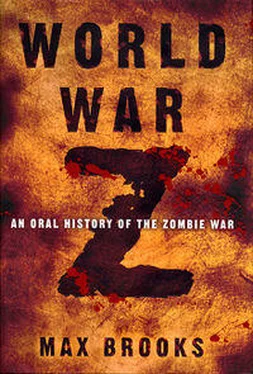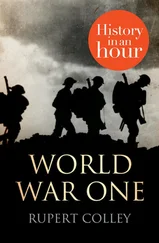Raiding derelicts was still strictly forbidden. Even when we spotted what looked like a deserted vessel, at least a few zombies could be heard banging belowdecks. Fishing was a possibility, but we had neither the material to rig any kind of net, nor were we willing to spend hours on the surface dropping hooks and lines over the side.
The solution came from the civilians, not the crew. Some of them had been farmers or herbalists before the crisis, and a few had brought little bags of seeds. If we could provide them with the necessary equipment, they might be able to start raising enough food to stretch our existing provisions for years. It was an audacious plan, but not completely without merit. The missile room was certainly large enough for a garden. Pots and troughs could be hammered out of existing materials, and the ultraviolet lamps we used for the crews vitamin D treatment could serve as artificial sunlight.
The only problem was soil. None of us knew anything about hydroponics, aeroponics, or any other alternate agricultural method. We needed earth, and there was only one way to get it. The captain had to consider this carefully. Trying to deploy a shore party was as dangerous as, if not more than, attempting to board an infested ship. Before the war, more than half of all human civilization lived at or near the world’s coastlines. The infestation only increased this number as refugees sought to flee by water.
We began our search off the mid-Atlantic coast of South America, from Georgetown, Guyana, then down the coasts of Surinam, and French Guyana. We found several stretches of uninhabited jungle, and at least by periscope observation, the coast appeared to be clear. We surfaced and made a second, visual sweep from the bridge. Again, nothing. I requested permission to take a landing party ashore. The captain was not yet convinced. He ordered the foghorn blown… loud and long… and then they came.
Just a few at first, tattered, wide-eyed, stumbling out of the jungle. They didn’t seem to notice the shoreline, the waves knocking them over, pushing them back up on the beach or pulling them out to sea. One was dashed against a rock, his chest crushed, broken ribs stabbing through the flesh. Black foam shot from his mouth as he howled at us, still trying to walk, to crawl, in our direction. More came, a dozen at a time; within minutes we had over a hundred plunging into the surf. This was the case everywhere we surfaced. All those refugees who’d been too unlucky to make it to the open ocean now formed a lethal barrier along every stretch of coastline we visited.
Did you ever try to land a shore party?
[Shakes his head.] Too dangerous, even worse than the infested ships. We decided that our only choice was to find soil on an offshore island.
But you must have known what was happening on the world’s islands.
You would be surprised. After leaving our Pacific patrol station, we restricted our movements to either the Atlantic or the Indian Ocean. We’d heard transmissions or made visual observations of many of those specks of land. We learned about the overcrowding, the violence … we saw the gun flashes from the Windward Islands. That night, on the surface, we could smell the smoke as it drifted east from the Caribbean. We could also hear islands that weren’t so lucky. The Cape Verdes, off the coast of Senegal, we didn’t even see them before we heard the wails. Too many refugees, too little discipline; it only takes one infected soul. How many islands remained quarantined after the war? How many frozen, northern rocks are still deeply and dangerously in the white?
Returning to the Pacific was our most likely option, but that would also bring us right back up to our country’s front door.
Again, we still did not know if the Chinese navy was hunting us or even if there was still a Chinese navy. All we knew was that we needed stores and that we craved direct contact with other human beings. It took some time to convince the captain. The last thing he wanted was a confrontation with our navy.
He was still loyal to the government?
Yes. And then there was … a personal matter.
Personal? Why?
[He skirts the question.]
Have you ever been to Manihi?
[I shake my head.]
You couldn’t ask for a more ideal image of a prewar tropical paradise. Flat, palm-covered islands or “motus” form a ring around a shallow, crystal-clear lagoon. It used to be one of the few places on Earth where they cultured authentic black pearls. I had bought a pair for my wife when we visited Tuamotus for our honeymoon, so my firsthand knowledge made this atoll the most likely destination.
Manihi had changed utterly since I was a newly married ensign. The pearls were gone, the oysters were eaten, and the lagoon was crowded with hundreds of small, private boats. The motus themselves were paved with either tents or ramshackle huts. Dozens of improvised canoes either sailed or rowed back and forth between the outer reef and the dozen or so large ships that were anchored in deeper water. The whole scene was typical of what, I guess, postwar historians are now calling “the Pacific Continent,” the refugee island culture that stretched from Palau to French Polynesia. It was a new society, a new nation, refugees from all over the world uniting under the common flag of survival.
How did you integrate yourself into that society?
Through trade. Trade was the central pillar of the Pacific Continent. If your boat had a large distillery, you sold fresh water. If it had a machine shop, you became a mechanic. The Madrid Spirit, a liquefied natural gas carrier, sold its cargo off for cooking fuel. That was what gave Mister Song his idea for our “market niche.” He was Commander Song’s father, a hedge-fund broker from Shenzhen. He came up with the idea of running floating power lines into the lagoon and leasing the electricity from our reactor.
[He smiles.]
We became millionaires, or… at least the barter equivalent: food, medicine, any spare part we needed or the raw materials to manufacture them. We got our greenhouse, along with a miniature waste recovery plant to turn our own night soil into valuable fertilizer. We “bought” equipment for a gymnasium, a full wet bar, and home entertainment systems for both the enlisted mess and wardroom. The children were lavished with toys and candy, whatever was left, and most importantly, continuing education from several of the barges that had been converted into international schools. We were welcomed into any home, onto any boat. Our enlisted men, and even some of the officers, were given free credit on any one of the five “comfort” boats anchored in the lagoon. And why not? We lit up their nights, we powered their machinery. We brought back long forgotten luxuries like air conditioners and refrigerators. We brought computers back online and gave most of them the first hot shower they’d had in months. We were so successful that the island council even allowed us a reprieve, although we politely refused, from taking part in the island’s perimeter security.
Against seaborne zombies?
They were always a danger. Every night they would wander up onto the motus or try to drag themselves up the anchor line of a low-lying boat. Part of the “citizenship dues” for staying at Manihi was to help patrol the beaches and boats for zombies.
You mentioned anchor lines. Aren’t zombies poor climbers?
Not when water counteracts gravity. Most of them only have to follow an anchor chain tip to the surface. If that chain leads to a boat whose deck is only centimeters above the water line… there were at least as many lagoon as beach attacks. Nights were always worse. That was another reason we were so welcome. We could take back the darkness, both above and below the surface. It is a chilling sight to point a flashlight at the water and see the bluish-green outline of a zombie crawling up an anchor line.
Читать дальше












